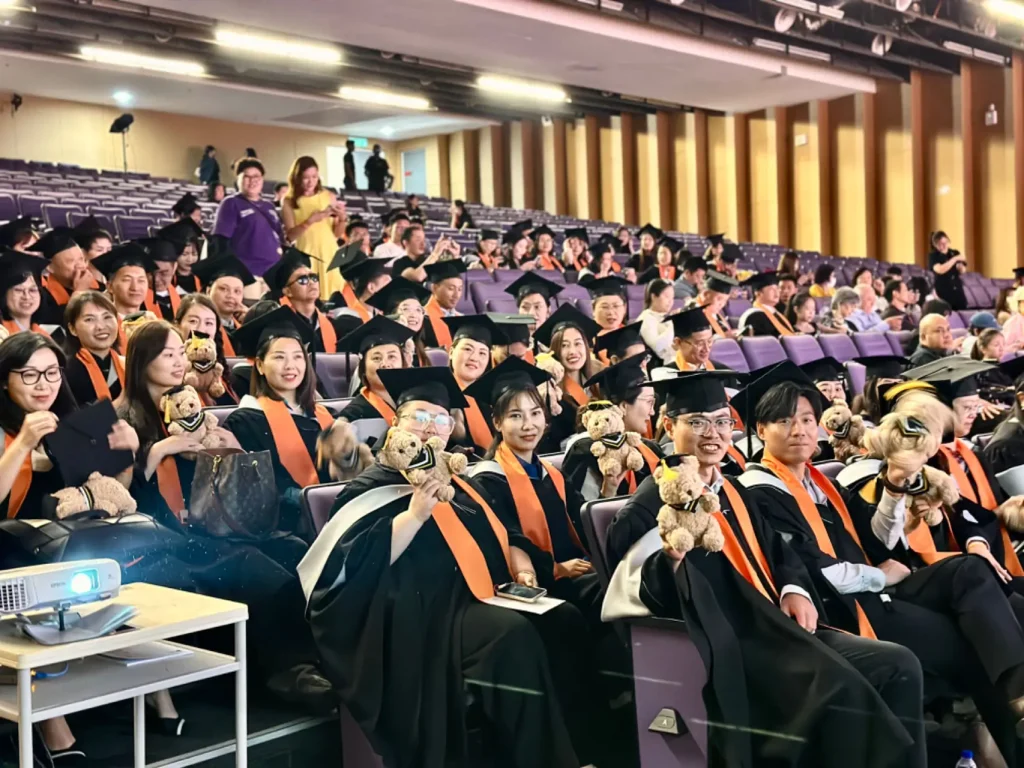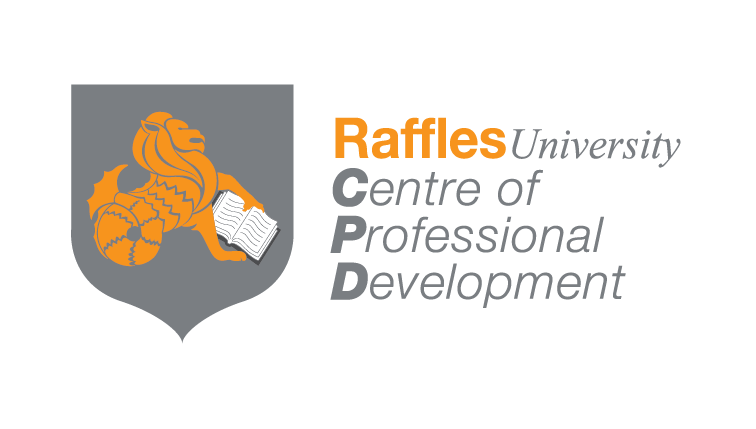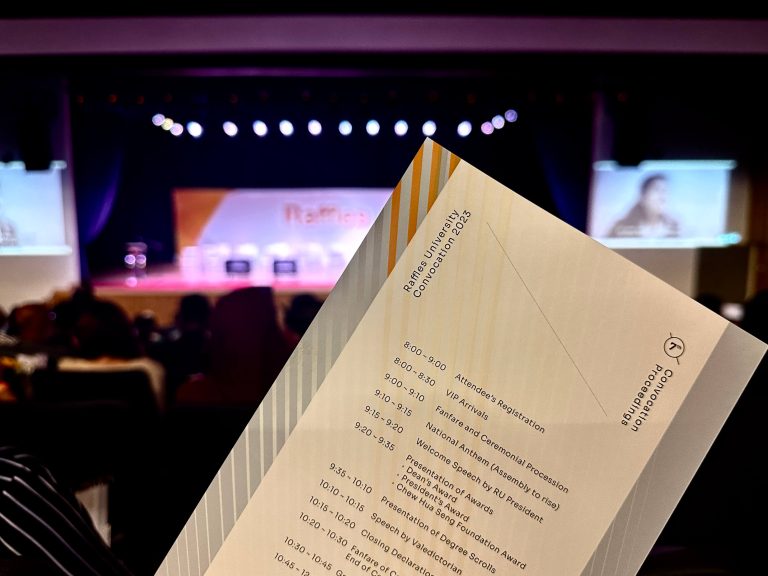
Executive Doctor of Psychology
RAFFLES
RAFFLES
Executive Doctor of Psychology
OVERVIEW
The Executive Doctor of Psychology (EDPY) programme is an terminal degree tailored for senior psychologists and leaders in the field seeking to deepen their understanding and expertise in psychology. The most distinguishing characteristic of this program is its focus on practical application and professional development, designed to graduate students in three years.
This programme provides an in-depth exploration of cutting-edge psychological theories, research methods, and practices. Students have the opportunity to customise their study by specialising their dissertation topics in areas that align with their personal interests, professional goals, and industry experiences. Whether it’s cognitive psychology, developmental psychology, organizational psychology, or any other area, students are encouraged to pursue their passions and make meaningful contributions to the field.
Through this programme, participants will engage in advanced research, critical discussions, and practical applications. They will learn to analyse complex psychological issues, develop innovative solutions, and apply their knowledge in real-world settings. Upon completion, they will be equipped with the leadership, analytical, and counselling skills necessary to excel in their chosen field of psychology and drive positive changes in individuals, organisations, and society.
Programme Length: Three-Year
Programme Delivery Mode: Online Learning
Programme Delivery Language: Chinese
Entry Requirements: A Master’s Degree and with 5 years relevant working experience
Certificate Award: Raffles University Executive Master of Psychology, Executive Doctor of Psychology

PROGRAMME MODULE
This course helps students understand the basic process of psychological counseling, understand the psychological counseling techniques of different psychological schools, and lay a foundation for the subsequent study of the practical operation of psychological counseling techniques.
This module introduces students to theories of motivation and emotion. These theories will be related to learning theories. The influence of motivation on cognition and self-regulation will be briefly discussed.
This course introduces in detail the development, theory, application and influence of different schools of personality psychology to help students understand personality psychology as a whole.
This module introduces students to the field of cognitive psychology. Topics shall cover the major subareas within cognition, focusing on an understanding of the major theories, research findings, and practical applications associated with cognitive science applied to psychology.
The module will explore Freud and his circle, the origins of psychoanalytic and psychobiographic theories, and goes on to explore its development in the post-Freud era. A unique element of this module would be the evaluation of artistic works, such as paintings, movies, and poems, to illustrate the psychoanalytic theories.
This course provides a broad overview of the theories and methods of social psychology. The emphasis of the course is on the scientific understanding of individual behaviour in its social context. Topics to be discussed include impression formation, interpersonal attraction, prejudice and discrimination, attitudes, aggression, group psychology, and personality.
This module provides students with the knowledge and understanding to evaluate and influence consumer behaviour using psychological theories and practices
This module provides the students with fundamentals of cultural psychology and their implications for current/future practice in the context of a multi-cultural society and/or workplace.
This course helps students learn psychometric from the development of psychometrics and different types of scales. Understand the scope of application of different psychometric scales, analyze the data of learning scales, and understand the meaning of different data
This module provides an introduction to psychological research techniques and methodologies. Topics to be covered include the logic of research, the issues that must be considered in deciding how to study various psychological phenomena, and ways to address the difficulties posed by the limitations of specific studies. These issues will be illustrated through reference to the examples of research on various topics in psychology.
This module is designed to provide guided working/research experience to students. The student is expected to produce an original piece of research in an applied setting.
This course aims to provide students with valuable opportunities to gain in-depth insights into industry frontiers, corporate operational practices, and career development trends. Through a combination of field visits and/or workshops, students will be able to intuitively experience corporate culture, understand the operational models, technological innovations, market strategies, and industry development trends in different sectors. This will enhance students’ practical abilities, innovative consciousness, and comprehensive competitiveness.
This course is designed to equip students with essential skills and knowledge for both analytical thinking and effective academic writing. In the realm of critical thinking, students will learn to evaluate and analyze information from various sources, identify logical fallacies, and form well-reasoned arguments. The thesis writing component focuses on guiding students through the entire process of crafting a coherent and compelling academic paper. From formulating a clear research question and conducting in-depth literature reviews to structuring the thesis, presenting evidence, and polishing the language, students will receive step-by-step instruction and feedback. They will also master effective research methods, citation styles, and language usage to produce high-quality academic works.
Qualitative Methods for Research is an immersive and comprehensive course designed to equip students with the fundamental principles, tools, and techniques essential for conducting rigorous and insightful qualitative research. This course offers a deep dive into the world of qualitative inquiry, emphasizing the exploration of human experiences, behaviors, perceptions, and social phenomena through non-numerical, interpretive approaches.
Throughout the course, students will learn how to formulate research questions that are suitable for qualitative methods, understand the theoretical frameworks that underpin qualitative research, and engage with various qualitative methodologies such as phenomenology, grounded theory, ethnography, and narrative analysis. The emphasis is on developing a nuanced appreciation for the complexities of human experience and the ability to capture, analyze, and interpret qualitative data with sensitivity and rigor.
This an essential course designed to equip students with the foundational knowledge and practical skills necessary for conducting rigorous and evidence-based research across various disciplines. This course offers a comprehensive introduction to the principles, techniques, and tools of quantitative analysis, empowering students to design studies, collect and analyze data, and interpret results in a statistically sound manner.
Throughout the course, students will gain a deep understanding of fundamental statistical concepts such as descriptive statistics, probability distributions, hypothesis testing, and confidence intervals. These concepts serve as the building blocks for more advanced topics including correlation and regression analysis, analysis of variance (ANOVA), and multivariate statistical methods. The emphasis is on applying these methods to real-world research problems, fostering a critical and analytical mindset in addressing complex questions.
This 12-credit Research Thesis (Proposal Defense) course serves as a pivotal milestone in the master’s degree program, requiring students to formulate and defend a research proposal that outlines their intended thesis project. The course equips students with the necessary skills to conduct an in-depth literature review, identify research gaps, and develop a rigorous research methodology. Students engage in iterative feedback sessions with faculty mentors to refine their proposals, ensuring they are well-grounded in theory and feasible in practice. The culmination of the course is a Proposal Defense, where students present and justify their research plans to a panel of experts, demonstrating their readiness to embark on a substantial research endeavor.
This 16-credit Research Thesis (Final Viva-Voce) course marks the conclusion of the master’s thesis journey, where students present and defend their completed thesis work. This course builds upon the foundation laid in the Proposal Defense, challenging students to integrate their research findings, analyze data critically, and draw conclusions that contribute to the advancement of knowledge in their field. The Final Viva-Voce examination involves a rigorous oral defense of the thesis, where students must articulate their research objectives, methodology, findings, and implications to a panel of faculty and, in some cases, external experts. This course not only assesses the quality of the thesis but also evaluates students’ ability to communicate their research effectively and respond to critical questions. Upon successful completion, students demonstrate their mastery of research skills and their capacity to make meaningful scholarly contributions.
Process of Thesis Writing
- Identifying Research Problems and Objectives
- Conduct Literature Review
- Identify Research approach and Design
- Present Research proposal
- Conduct Original Research and Collect Result
- Present Research Conclusion
- Write a Thesis and submit it as a Dissertation
- Defend Thesis in an Oral Viva Vace Examination
Frequently asked questions
An Executive Doctor of Psychology (EDPY) is an terminal degree tailored for experienced psychology professionals who possess a master’s degree in psychology or a related field and aim to enhance their career prospects. The EDPY programme fosters students’ comprehension of advanced research methodologies and contemporary psychological issues, enabling them to address real-world challenges in their field.
The EDPY programme is ideal for professionals such as:
- Industrial-Organisational Psychologists interested in advancing their understanding of human behaviour in organisations and applying psychological principles to improve workplace efficiency and employee satisfaction.
- Distinguished Consultants, Coaches, Executives, who want to differentiate themselves with advanced psychological insights and strategies to stand out from their peers.
- Individuals with a profound interest in psychology, seeking to satisfy their quest for knowledge exploration and enhance their overall competitiveness and personal development.
PhD programs in psychology typically focus on theoretical and empirical research, preparing students for academic careers as researchers and professors. They require full-time study for several years, often involving the completion of a dissertation.
The EDPY, on the other hand, is a professional doctorate designed for practicing psychologists. It emphasizes the application of psychological theories and methodologies to real-world problems and issues. The EDPY programme often offers flexibility in terms of study schedules, making it suitable for working professionals. The Raffles EDPY programme, for example, can be pursued online and typically takes around three years to complete.
RECENT NEWS

Enquiry Now
Raffles China offers a team of dedicated Education Consultants and student services to assist students with all their programme inquiries and the admission process. Do not hesitate to contact us for any assistance you may require.







